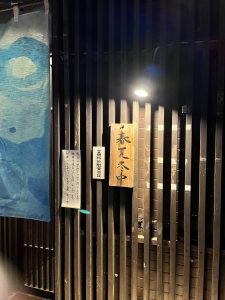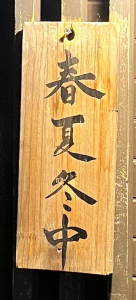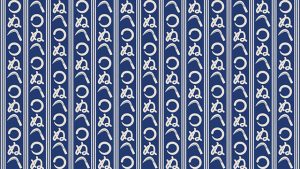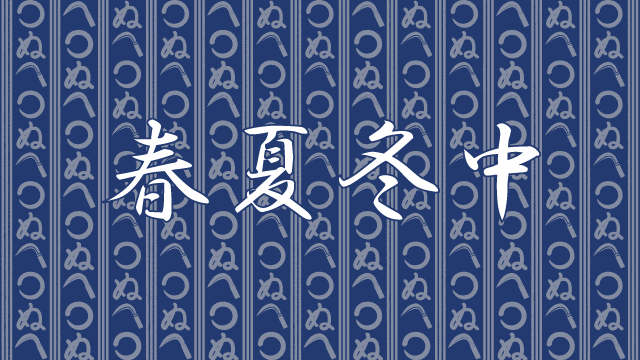What does “春夏冬中” mean?
You there who can read Japanese a little. It’s not seasons.
It is quite rare, but has anyone ever seen a store with such a wooden tag hanging from the wall?


You can sometimes see them in Shitamachi, such as Asakusa and Oshiage etc.
By the way, Shitamachi is a town for common people.
In Japanese, “Shita” means Down and “Machi” means Town.
That is Shitamachi = Downtown.
It seems to be the same all over the world, from ancient times to modern times, that people of high status live on high ground and common people live on low ground.
Now, let’s go back to the story.
This is a traditional expression, but not many Japanese can read it.
“春(Haru)” means Spring.
“夏(Natsu)” means Summer.
“冬(Fuyu)” means Winter.
And “中(Chu)” is during.
Did you notice that?
Yes, there is no “Autumn”. Autumn is “Aki” in Japanese.
In Japanese, “not being there” is “nai.
So, if you combine the two, you get..,
There isn’t autumn.
In Japanese, it is “Aki nai” → “Aki nai”.
“Aki nai” → “Akinai”.
“Akinai” means Business in Japanese.
Business is during.
In other words, it means “Open”.
Let’s open the door with confidence!
You may also see people wearing kimono with this pattern.


This is,
“鎌(sickle)” = “Kama
“◯=輪(Circle)” = “Wa”
“ぬ(Nu)” = “Nu”(which is phonetic and has no meaning)
So,”Kamawanu”
“Kamawanu” means “No probrem” in Japanese.
(However, it is an old-fashioned way of saying it, so it is samurai-like. If you wanted to say “No probrem!” and you said “Kamawanu!” to Japanese, you might get a big funny. LOL!)
It’s just a pun, but it’s clever. It’s also “Iki”.


Comments